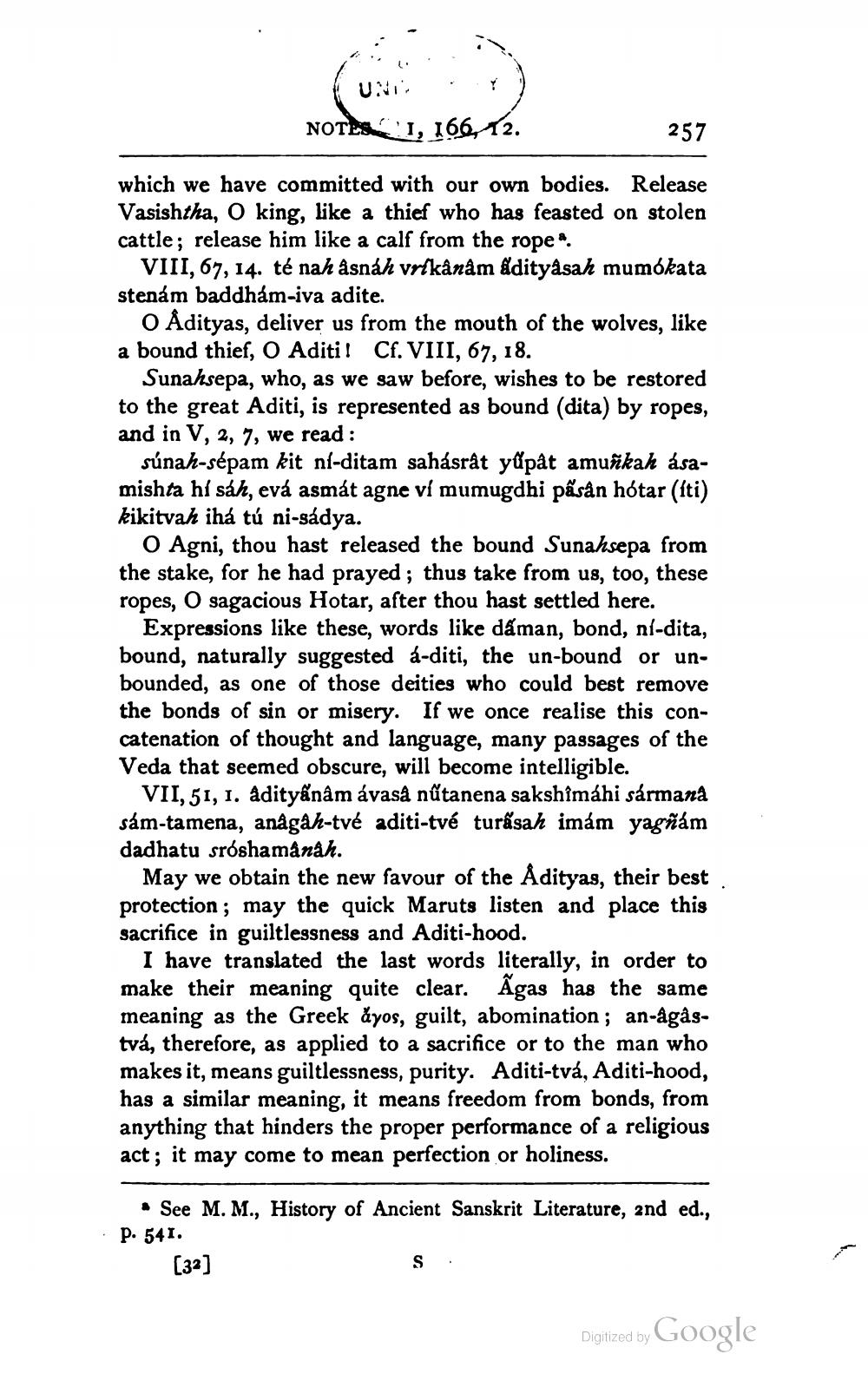________________
NOTES
1, 166, 12.
257
which we have committed with our own bodies. Release Vasishtha, O king, like a thief who has feasted on stolen cattle; release him like a calf from the rope a.
VIII, 67, 14. té nah åsnáh vrtkânâm ådityasah mumókata stenám baddhám-iva adite.
O Ådityas, deliver us from the mouth of the wolves, like a bound thief, O Aditi! Cf. VIII, 67, 18.
Sunahsepa, who, as we saw before, wishes to be restored to the great Aditi, is represented as bound (dita) by ropes, and in V, 2, 7, we read :
súnah-sépam kit ni-ditam sahasrat yüpât amuñkah asamishta hí sáh, evá asmát agne vi mumugdhi păsân hótar (Iti) kikitvah ihá tú ni-sádya.
O Agni, thou hast released the bound Sunahsepa from the stake, for he had prayed ; thus take from us, too, these ropes, O sagacious Hotar, after thou hast settled here.
Expressions like these, words like dáman, bond, ni-dita, bound, naturally suggested á-diti, the un-bound or unbounded, as one of those deities who could best remove the bonds of sin or misery. If we once realise this concatenation of thought and language, many passages of the Veda that seemed obscure, will become intelligible.
VII, 51, 1. adityânâm ávaså nấtanena sakshîmáhi sármana sám-tamena, anâgâh-tvé aditi-tvé turásah imam yagñám dadhatu sroshamanah.
May we obtain the new favour of the Adityas, their best. protection; may the quick Maruts listen and place this sacrifice in guiltlessness and Aditi-hood.
I have translated the last words literally, in order to make their meaning quite clear. Âgas has the same meaning as the Greek ayos, guilt, abomination ; an-agåstvá, therefore, as applied to a sacrifice or to the man who makes it, means guiltlessness, purity. Aditi-tvá, Aditi-hood, has a similar meaning, it means freedom from bonds, from anything that hinders the proper performance of a religious act; it may come to mean perfection or holiness.
• See M. M., History of Ancient Sanskrit Literature, and ed., . p. 541. [32]
S .
Digitized by
Digized by Google




